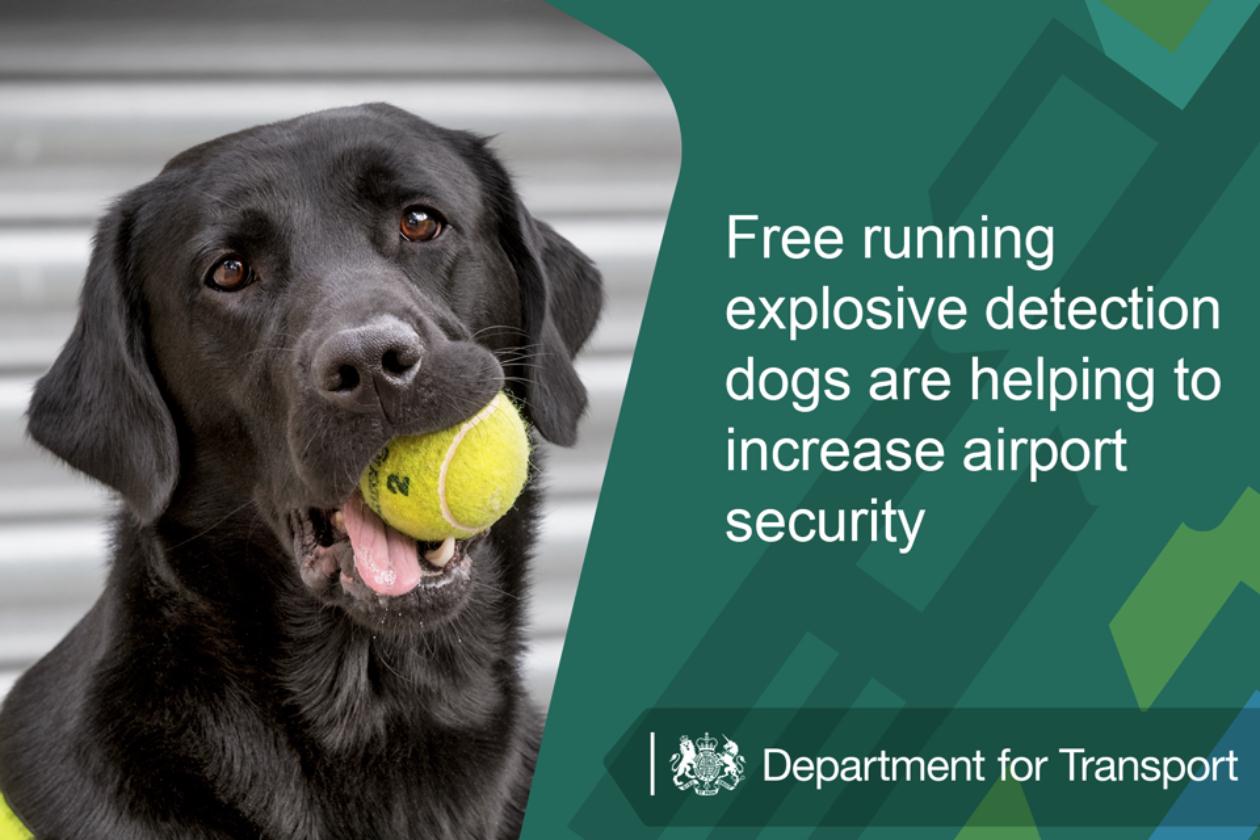Sniffer dogs are moving in on suspicious cargo at airports in the UK, while the US industry is getting ready for canine screening by private teams.
In the UK, dogs returned to air freight screening duty in early May after a four-year hiatus. In 2014 the Department for Transport had withdrawn its permission for canine screening to form part of the measures deployed under the air cargo security regime. It is not clear what swayed the regulators, nor what exactly it was that prompted them to exclude dogs for the security programme four years ago. In any case, they have formed a more favourable opinion of the capabilities of four-legged explosives detection.
According to the Department for Transport, each animal undergoes 12 months of rigorous training before its is put on duty, and the dogs go through regular quality assurance programmes as they perform their job in cargo sheds.
The Department for Transport pointed out that the dogs are used alongside existing screening methods.
Meanwhile, the US is also moving closer to canine inspection of air cargo. “The third-party canine screening programme is becoming clearer,” says Brandon Fried, executive director of the US Airforwarder Association (AFA).

The forwarder body has been a vocal advocate of private canine screening. It created a K9 coalition to submit proposals to the Transportation Security Agency. According to the AFA, 12 companies have expressed an interest in joining the coalition.
The lobbying effort appears to have borne fruit. Fried reported that a draft amendment for existing security programmes to include canine screening was introduced in April and is currently under review. Hopes that the final amendment would be released in May proved too optimistic, but the AFA now believes that the release is possible in October or November.
The wait could be used to address some open questions surrounding funding issues and the certification process. One thing that is clear is that the TSA will not perform the validation of private inspection outfits itself, but it will certify the validators.
Fried expects the certification process to be tough and drawn out. “The TSA is not going to make it easy. There’s going to be a lot of validation and auditing going on,” he predicted. “Audits are going to be substantial.”
Certificates will have to be renewed on an annual basis.
Sniffer dogs will become part of the TSA’s Certified Cargo Screening Programme (CCSP), which means that shippers and logistics providers can join the programme using canine inspection as their screening mechanism.
Fried noted that participation in CCSP has shown a decline in recent years. “Operators have been able to deal with screening,” he said.
The economic downturn and its toll on air cargo volumes certainly diminished the sense of urgency to establish certified screening facilities. Third-party screening, which had been widely predicted to take off after the implementation of mandatory screening of air cargo in the US, failed to take off as shippers and forwarders were confident that their cargo could be screened in time at the airport by carriers and handlers. With volumes on the rise and forecast to continue their upward momentum, the likelihood that on-airport screening may cause delays is going up as well. Hence interest in additional screening options is also mounting.
“The industry is forecasting that demand for this will spike. There will be a lot more applicants being put into the system,” said Fried.
He reckons that the integrators and airlines will be the first to use private sniffer dog teams to screen freight. Large forwarders will probably do this at strategic points, he adds. As for small and mid-sized agents, they will likely continue to tender their cargo unscreened, he thinks.
At a canine industry day held last year, multiple third-party canine screening companies were in attendance, which suggests that there should be no shortage of providers seeking certification. Nevertheless, Fried wonders if there will be enough dogs available for screening.
“My concern is inventory of dogs, getting them through the certification process,” he said, pointing to the widespread expectation that the TSA will put applicants under rigorous scrutiny.
By Ian Putzger
Air Freight Correspondent | Toronto



